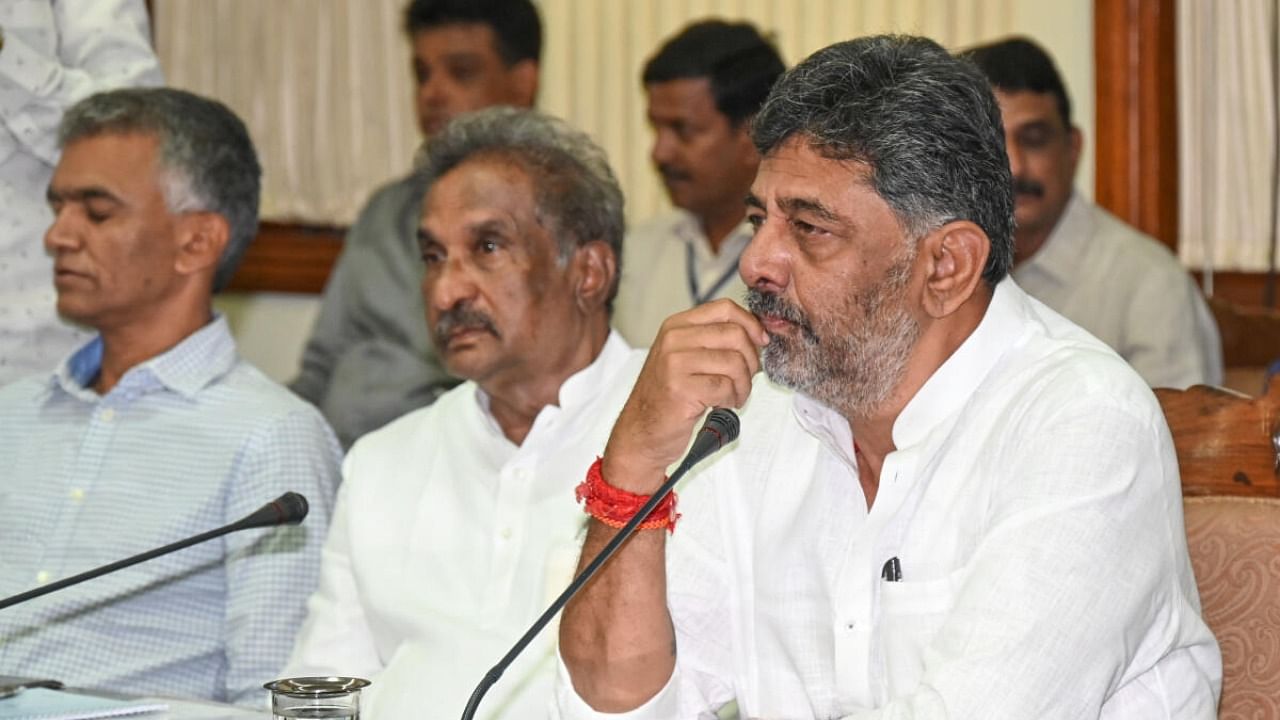
Amid expectations of a major rejig similar to departments helmed by his cabinet colleagues, Deputy Chief Minister D K Shivakumar has preferred a non-interventionist approach.
Notably, officials appointed during the BJP’s tenure still hold top positions in the Urban Development Department (UDD), Bruhat Bengaluru Mahanagara Palike (BBMP), and the Bengaluru Development Authority (BDA).
Sources close to the Bengaluru Development Minister disclosed to DH that there will be a major reshuffle of non-IAS officers across all departments within the next two to four weeks.
Also Read | Relief to DK Shivakumar: HC stays 2019 consent order for CBI probe on 'disproportionate' assets
This includes joint commissioners, revenue officers, engineers, and town planning officers.
During his first 20 in office, Shivakumar visited the head offices of key departments under the Bengaluru development portfolio, including Namma Metro, and conducted two city rounds. The minister reportedly assured IAS officers that he would not transfer them, as they have a better understanding of their respective departments.
But some officers and political leaders believe that this approach contradicts the Congress-led government’s stated commitment to investigating all the lapses of the previous BJP-led government, which faced accusations of 40 per cent commission charges.
“When the officers remain the same, will there be a probe at all?” a senior Congress leader wondered.
It has been learned that the state government put off plans to transfer the secretary of the BDA as Shivakumar did not approve it.
So far, the Bengaluru Development Minister has made no changes to any departments, except for appointing additional staff for his office.
On Monday, the state government approved the appointment of retired BBMP engineer K T Nagaraj as the technical advisor to the deputy chief minister.
Meeting with civil society
After recently meeting industry leaders and real estate developers, Shivakumar intends to hold a similar interactive session with members of the civil society in the near future.
Invitees may include ward committee members, urban planners, civic evangelists, environmentalists, and volunteer groups. Some suggestions received during these meetings may get allocations in the state budget scheduled for July.